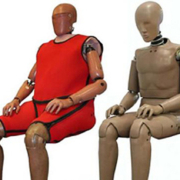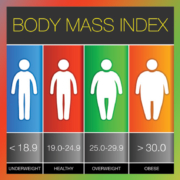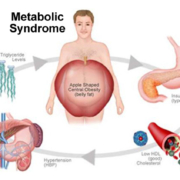Addressing the Systems of Health and Disease
A systems approach to dealing with diseases and conditions is not what we currently do: if you have pain, you want to relieve the pain. That approach may fix the symptom, but it also may not fix the failure of a complex system that caused the problem. If you’ve broken a bone or had a torn ligament surgically repaired, that was not a system failure, but the approach to get things back to normal would be the same. Multiple systems would be involved, not just pain control.
To illustrate the point, I’m going to talk about one of the most complicated conditions: carrying too much body fat. It affects 70% of the population of the U.S. and is a growing problem around the world. My advice for dealing with it goes like this: Eat less. Eat better. Move more. Those recommendations really don’t change, but to permanently lose the weight and keep it off, the number of systems involved is staggering.
A Systems Overview of Obesity
Here are some of the questions yet to be answered about organs and systems that are involved in weight reduction:
- What will happen to fat cells? The fat cells manufacture hormones that can impact appetite and hunger. At this point, there’s no research to suggest they’re ever reabsorbed.
- The pancreas produces digestive enzymes and insulin. How will less food or different foods along with more exercise impact their involvement in digestion and metabolism?
- Our taste buds have developed over the years. Will they change to reduce the taste and feel of sugar, fat, salt, and umami we may crave?
- Can the impact of insulin on the liver change? Your liver develops a process to convert carbohydrate to fat and store it. Will that be reversed?
- Will the adrenal gland respond to the decrease in fat intake and cholesterol production to reduce the production of cortisol and lower inflammation?
- What happens to the microbiome in the long term? Does it adapt? Does it stimulate hunger or decrease it?
I could go on and on, but I think you get the point. It’s complicated to deal with complex systems. We don’t have the answers yet because we haven’t been asking the right questions.
The Impact of Aging on Complex Systems
We know as people age, we lose muscle mass, gain body fat, and lose bone density among many other changes. What we don’t know much about is the specific changes in every type of cell, organ, or system. If we don’t have that, we may not be able to address the correct cog in the system. That doesn’t mean we shouldn’t try; we can take what we currently know about how our bodies change over a lifetime and use that as a starting point. The earlier in life the better, but we still have to deal with individuals and the bodies they have right now.
We live a lot longer than we did 100 years ago. It’s time we began making those years better in every way rather than simply managing pain and other infirmities.
The Bottom Line
This challenge lies before us: Find a way to manage complex systems in order to not just survive but thrive throughout our entire lives. That’s where I’m headed in developing Aging with a Vengeance. We have to deal with the changes from aging that contribute to where we are today, regardless of age. Along the way, we’ll find out the optimal age for preventing some of those issues or at least slowing them down. I’m pumped for this journey to be the best version of ourselves, regardless of our current age or physical state. We just have to keep our heads in the game.
What are you prepared to do today?









